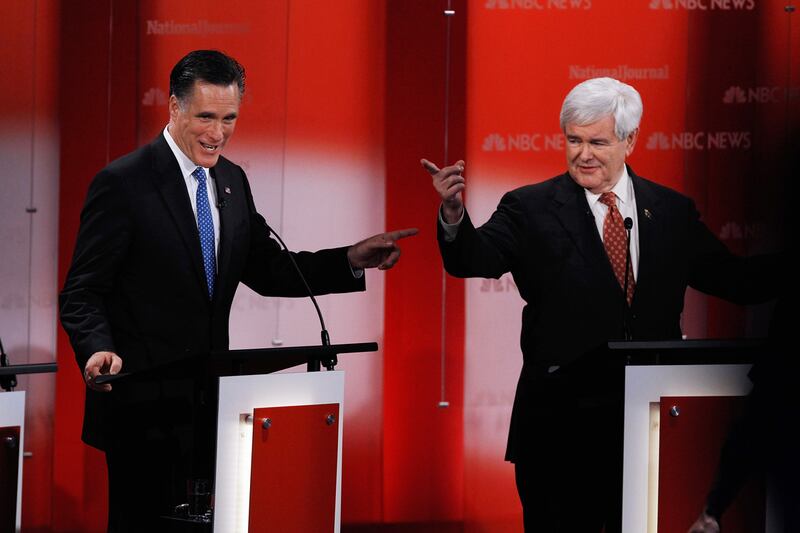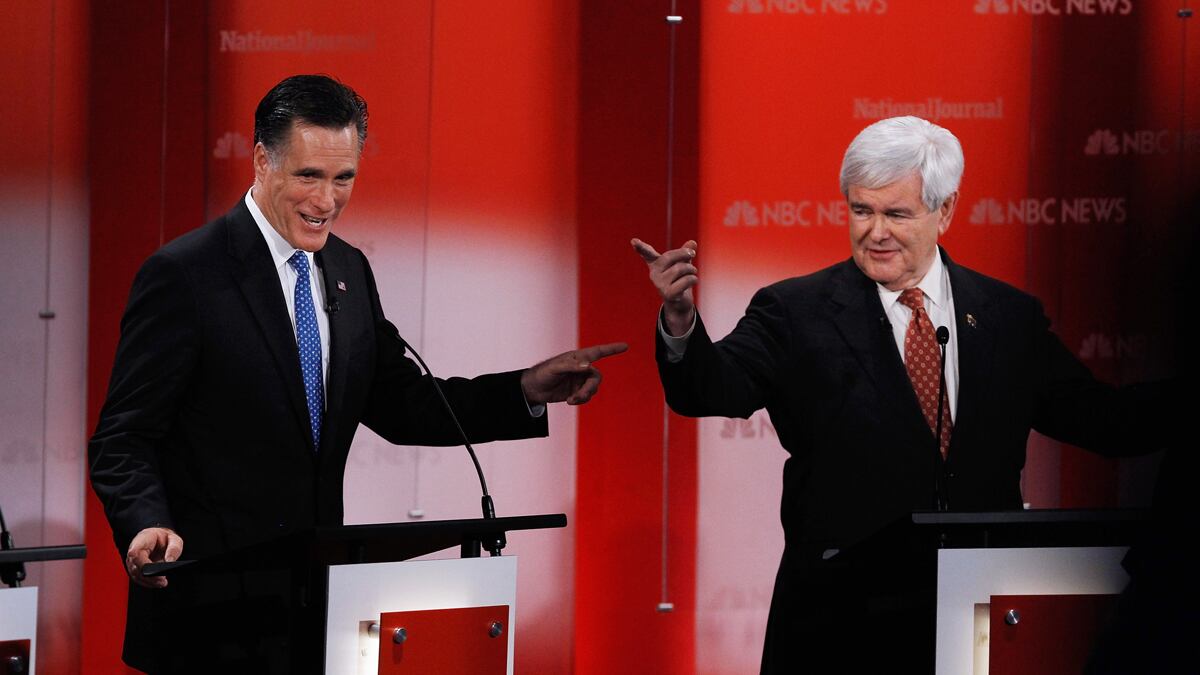When NBC’s Matt Lauer asked multimillionaire Mitt Romney about income inequality and the decline of the middle class, Romney replied, “You know, I think it’s fine to talk about those things in quiet rooms.”

Lauer’s NBC colleague Brian Williams gave Romney and his competitors a chance to discuss issues without the cheering, jeering, booing, embarrassing crowds we have seen in prior GOP debates. Without the roar of the crowd, Newt was much less effective. Like all bullies, he feeds off the mob. But tonight, at the urging of Williams, the crowd was mute and Gingrich’s faux fury, so effective in prior debates, never materialized.
Romney got what he wanted—a quiet room where he could coolly rebut Gingrich’s attacks and then launch his own preprogrammed counterattacks. His super-duper PAC is already savaging Gingrich on television, spending millions to inform Florida Republicans about Gingrich’s ethical woes, his lucrative Beltway consulting gigs, and his sofa sharing with Nancy Pelosi.
This will not, I believe, stop Newt’s momentum. And it does not do anything for the central problems facing Romney’s candidacy: middle-class voters don’t like him and conservative voters don’t trust him. Romney simply cannot connect to what Bill Clinton used to call “walkin’ around folks.” He looked especially phony when talking about undocumented workers “self-deporting” and squirmed when asked about his tax returns.
Indeed, the saddest moment of the debate—perhaps of the entire campaign—was Willard Mitt Romney distancing himself from George Romney. The elder Romney walked out of the 1964 GOP Convention because he believed the party of Lincoln was walking away from civil rights. And when he sought the presidency in 1968 he released 12 years of back tax returns, noting at the time that releasing only one year might allow a politician to clean up his returns knowing he was planning to run for office.
But Romney repudiated his father—sad in any context, but especially when the younger Mitt is so obviously a CEO/governor/millionaire in part because of the advantages his CEO/governor/millionaire father bestowed on him.
“You know,” Mitt said, “I agree with my dad on a lot of things, but we also disagree. And going out with 12 years of returns is not something I’m going to do.” Apparently Romney has placed his filial devotion in the same blind trust in which he has stored his dignity.
The tax issue will continue to dog Romney, even after he releases one or two tax returns. Voters will want to know why Romney reportedly has multimillion-dollar investments in the Caymans. Romney will be asked endlessly what he’s hiding: were there years when he paid even less than 15 percent? Did he ever pay zero—or close to it? These questions simply will not confine themselves to quiet rooms.
Ron Paul and Rick Santorum, two talented debaters who know their minds and are not afraid to speak them (unlike, too often, Romney) were often left in the dust. Santorum was asked about his aggressive intervention in the tragic case of Terri Schiavo, the Floridian whose husband wanted to honor her wish to be disconnected from life support. You could almost see the thought bubble over Newt Gingrich’s head when the topic turned to a helpless woman in a hospital bed: “Obviously, you divorce her.”




